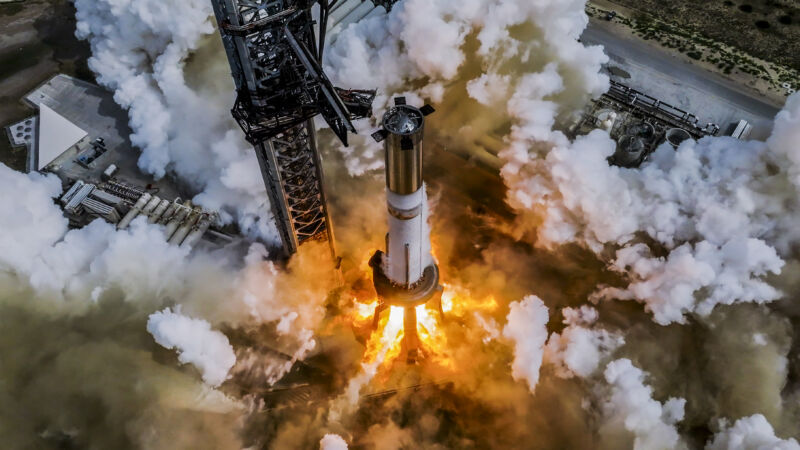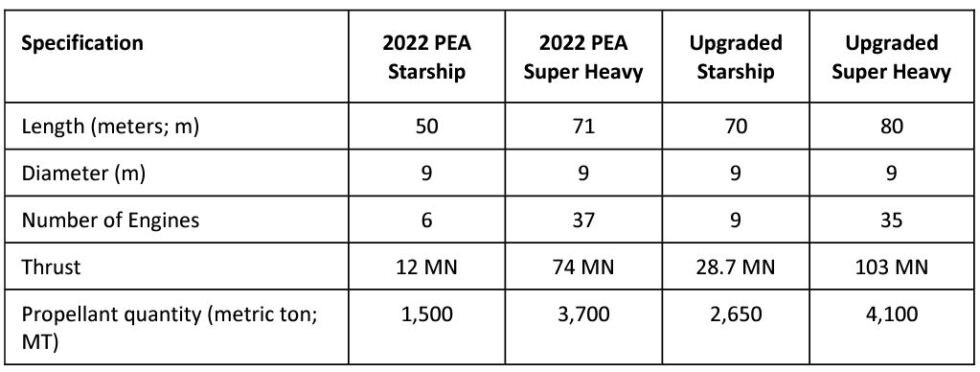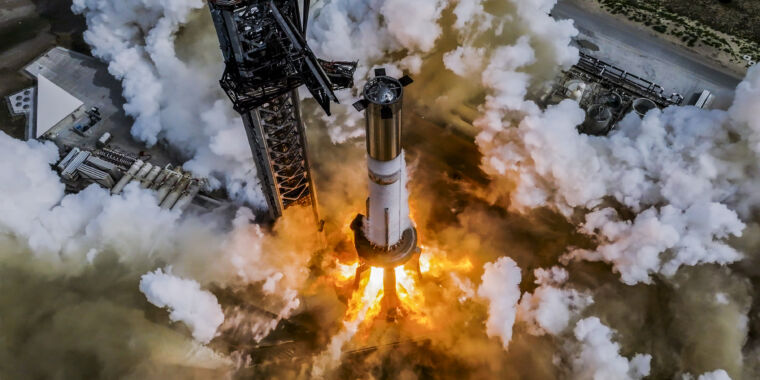
SpaceX
After SpaceX decided to launch orbital missions of its Starship rocket from Texas about five years ago, the company had to undergo a federal environmental review of the site to ensure it was safe to do so.
As a part of this multi-year process, the Federal Aviation Administration completed a Final Programmatic Environmental Assessment in June 2022. Following that review, SpaceX received approval to conduct up to five Starship launches from South Texas annually.
SpaceX has since launched Starship four times from its launch site in South Texas, known as Starbase, and is planning a fifth launch within the next two months. However, as it continues to test Starship and make plans for regular flights, SpaceX will need a higher flight rate. This is especially true as the company is unlikely to activate additional launch pads for Starship in Florida until at least 2026.
To that end, SpaceX has asked the FAA for permission for up to 25 flights a year from South Texas, as well as the capability to land both the Starship upper stage and Super Heavy booster stage back at the launch site. On Monday, the FAA signaled that it is inclined to grant permission for this.
A solid step for SpaceX
The federal agency released a 154-page “Draft Tiered Environmental Assessment” for an increased cadence of Starship launches from South Texas. In conclusion, the document stated: “The FAA has concluded that the modification of SpaceX’s existing vehicle operator license for Starship/Super Heavy operations conforms to the prior environmental documentation, consistent with the data contained in the 2022 PEA, that there are no significant environmental changes, and all pertinent conditions and requirements of the prior approval have been met or will be met in the current action.
Effectively, then, the FAA is saying that its extensive 2022 analysis of Starship activities on the environment, wildlife, local communities, and more was sufficient to account for SpaceX’s proposed modifications.
This is not the final word. In the parlance of the FAA, this is just milestone No. 3 in the seven-part process that results in a final determination. Up next are a series of public meetings, both in person in South Texas and online, during the month of August. The public comment period will then close on August 29.
Although the process is not yet complete, this document indicates the current thinking of federal regulators, who appear inclined to be permissive of an increased scope of activities. This is no small finding, as SpaceX is not only seeking to launch more rockets, but also to land them back at Starbase, as well as significantly increase the thrust of the vehicles.
SpaceX asked the FAA—which has federal authority to regulate such activities in order to protect life and property on the ground—for 25 annual launches and 50 total landings, 25 for Starship and 25 for Super Heavy. The company is also seeking to conduct up to 90 seconds of daytime Starship static fire tests, and 70 seconds of daytime Super Heavy static fire tests a year.
Bigger rockets, more propellant
SpaceX also is developing more powerful variants of its rocket, and the launch of these vehicles would also be permitted. Under the environmental assessment completed in 2022, SpaceX’s plans called for a 50-meter-tall Starship and a 71-meter-tall Super Heavy booster stage. Its upgraded Starship would be 70 meters tall, atop an 80-meter boost stage, for a total stack height of 150 meters.
The company is contemplating a far greater thrust for each of the vehicles, more than doubling Starship’s thrust to 6.5 million pounds and substantially increasing Super Heavy’s thrust to 2.3 billion pounds. A bigger, more powerful launch system will require more than 1,500 tons of liquid oxygen and methane propellant.

FAA
One change that may have helped sell this increased flight rate is that SpaceX is not seeking any additional increases in road closures of State Highway 4, which leads from Brownsville to Boca Chica Beach. This road passes right by the launch site and is closed during launches and static fire tests. SpaceX has moved much of its pre-launch testing to a new location nearby that does not require road closures.
“SpaceX has dramatically reduced the duration of operations and the number of access restrictions through engineering analysis and improvements,” the FAA draft document states. “There has been an 85% reduction in the number of access restrictions from Flight 1 to Flight 3. Additionally, a majority of the testing that required access restrictions has been moved to SpaceX’s Massey’s Test Site, approximately 4 miles away.”
After the public comment period, the FAA will prepare a final environmental assessment and render a decision on the request.

